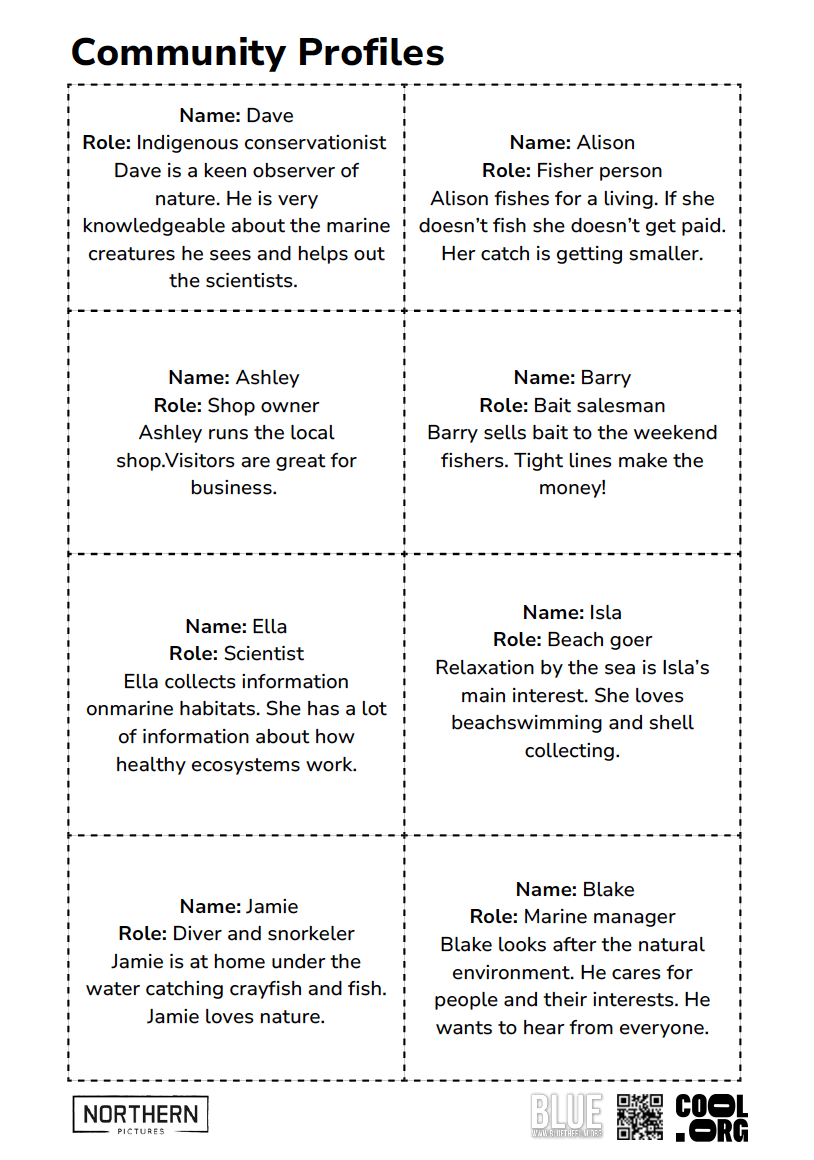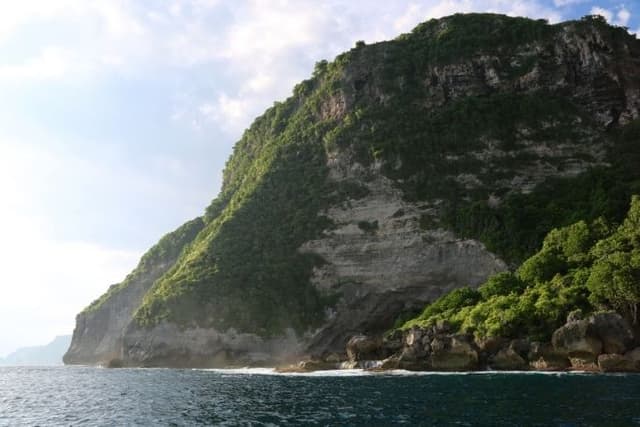
Blue - Marine Protected Areas
Lesson7 of 9 in this unit
PrimaryYear 5 - 6ScienceHumanities and Social SciencesGeographyEnvironmentalBiodiversityConservationOceansWater
Summary
Lesson Guides and Printables
Lesson Plan
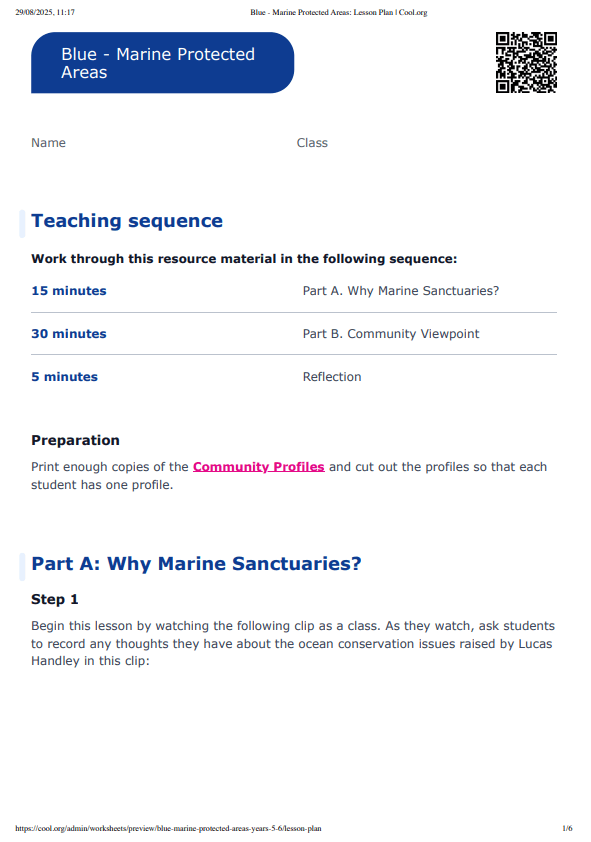
Student Worksheet
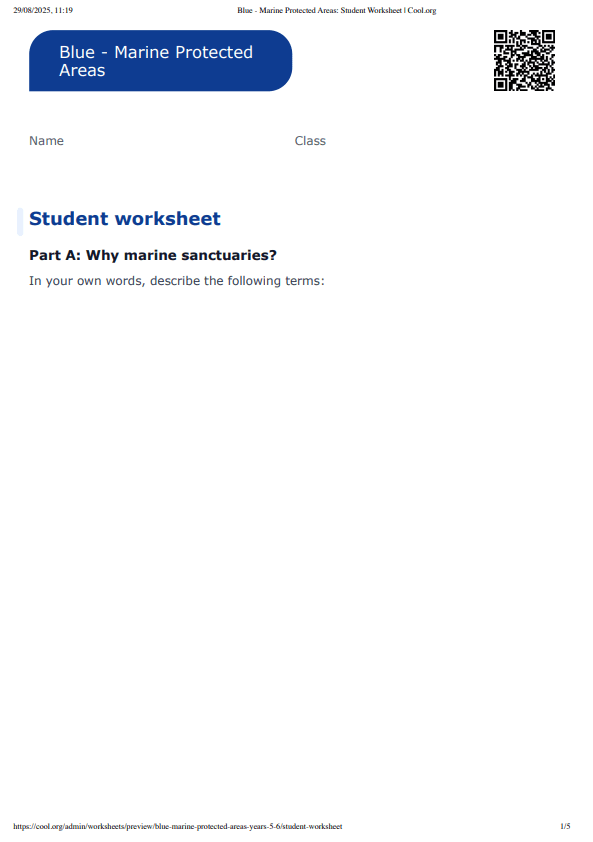
Teacher Content Info
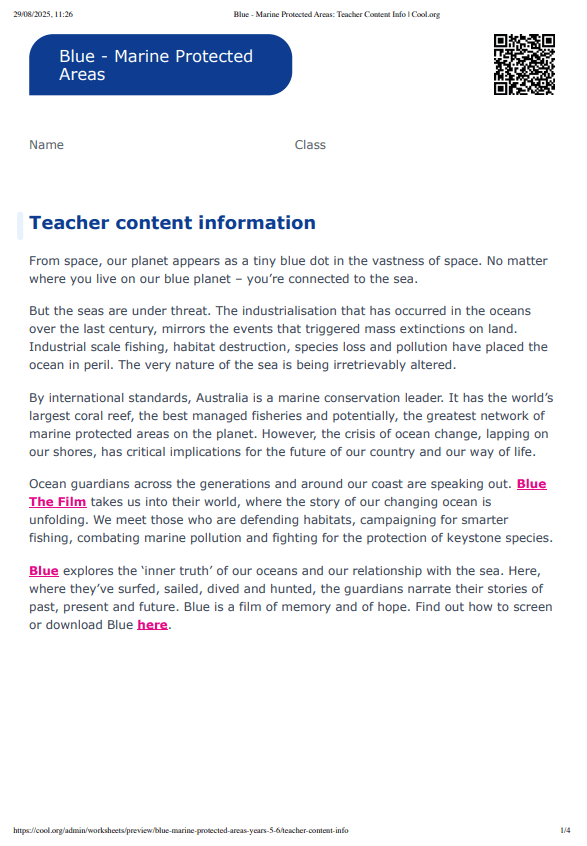
Community Profiles
